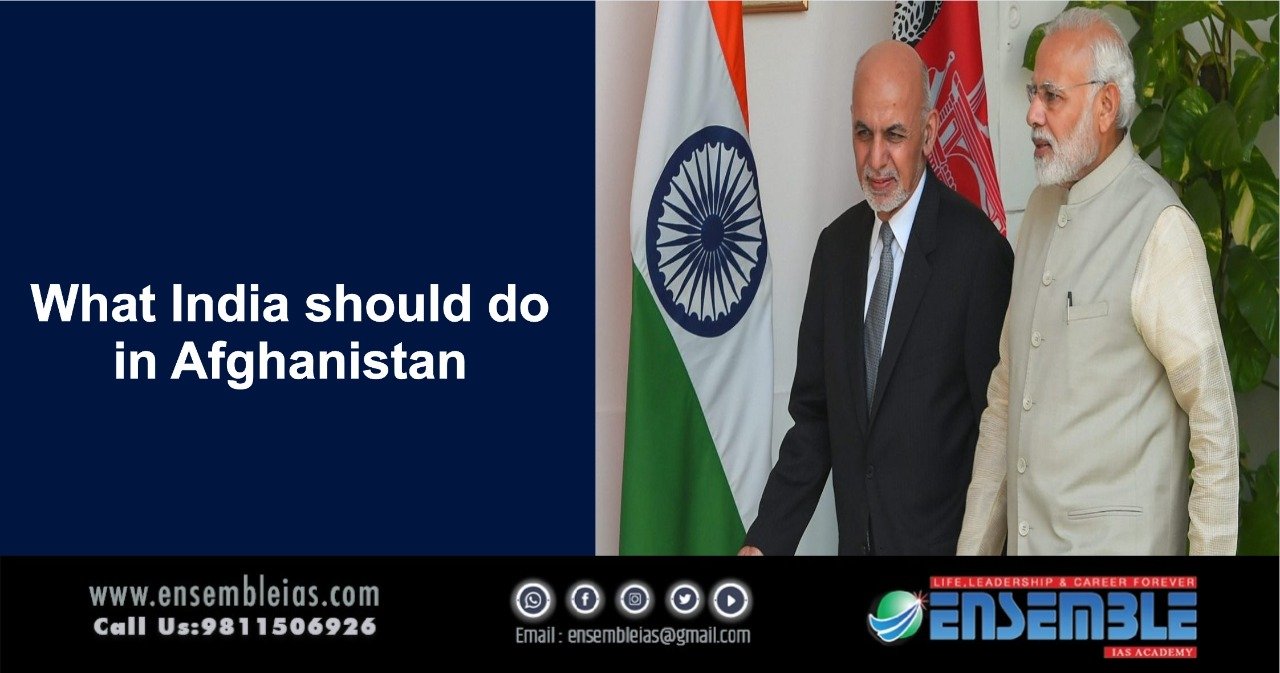It should focus on securing interests and openly engage with Taliban; this is possible without damaging current New Delhi-Kabul ties
To buy our online courses: Click Here
With the withdrawal, for justified security reasons, of home-based personnel from its Kandahar consulate, India’s footprint in Afghanistan has shrunk further. The Jalalabad and Herat consulates have not had Indian officials for over a year by now. All three are, thus, effectively non-functional because representational offices are not merely visa application collection centres. If the Taliban begin to threaten Mazar-e-Sharif, the consulate there too will have to operationally shut down.
All this would be to Pakistan’s immense satisfaction. It actively lobbied Afghan authorities in 2002 against granting permission to India to open consulates in the country. Pakistan argued that the nature and potential of India-Afghan relations did not justify an extensive Indian presence. It asserted that Indian consulates would be utilised to foment problems in its territory. Pakistani well-wishers in the Afghan system supported its views. It took deft diplomatic handling to overcome the misgivings of some top Afghan leaders to get permission open the consulates.
There is no doubt now that none of the four consulates can become functional till the uncertainties accompanying the withdrawal of United States (US) and NATO forces are resolved. The rapid Taliban military advance in north-eastern, and parts of western and northern Afghanistan, has taken most of the world by surprise.
It is even now unclear if the Taliban has abandoned the idea of participating in an interim government. If it does so, it would seek to dominate it and control its security component. The momentum of current military events though is making the possibility of an interim government slimmer. In any event, the Taliban will now be a most significant if not the decisive political factor in Afghanistan.
At his recent joint press conference in Moscow with his Russian counterpart external affairs minister S Jaishankar remarked, “At the end of the day, who governs Afghanistan has a legitimacy aspect of it. I think that is something which cannot and should not be ignored”. Earlier, he had stressed the need for a “double peace”— in and around Afghanistan. These ideas are fine in principle but are ineffectual, for India can hardly influence the unfolding situation in Afghanistan in any meaningful and sustained way.
Despite all the recent US talk of not accepting a government formed by force in Afghanistan, the international community will not revert to its 1990s anti-Taliban approaches. The Taliban is also playing the diplomatic game skilfully. Recently, a Taliban spokesperson assured China that Uighur militants will not be allowed space in Afghanistan. Iran and Russia have been in close contact with the Taliban for many years, and would have undoubtedly worked out arrangements to ensure their real security interests in the region remain secure. Thus, even while pressing the Taliban against repeating the horrors of 1990s Islamic Emirate, many important countries are unlikely to deny it legitimacy.
In sum, India will have to deal openly with the Taliban in the near future. It has avoided doing so till now, though there are recent reports of out-of-sight contacts. Instead of being ahead of the diplomatic curve in respect of the Afghan situation, India has been well behind it. It decided to put its eggs in the Hamid Karzai basket earlier and later, more surprisingly, in that of the mercurial Ashraf Ghani. For quite some time, it even allowed its contacts built over years in Kabul to get interrupted but later worked to undo the damage.
Ironically, while Karzai and Ghani were in contact with the Taliban for years, India decided to shun the group. Taliban’s close relations with Pakistan were undoubtedly an inhibiting factor, even though the group was signalling for many years that India should not consider it as a Pakistani puppet. In their meetings with Indians, Taliban representatives emphasised that it had not sought to harm Indian projects in Afghanistan. It had also avoided taking strident positions on sensitive Indian concerns.
Some Taliban elements, at Pakistan’s behest in all likelihood, indulged in violence against Indian diplomatic entities. While these actions need redressal and justice for lives lost, did not diplomacy demand, at least since early 2017, that the door be not kept shut in the Taliban face? Great powers maintain a persistent focus on their interests and adopt flexible approaches.
There is little doubt that Pakistan is asking the Taliban to keep India at arm’s length. This can also be inferred from Pakistan national security adviser Moeed Yusuf’s comment, during a recent TV show, that India “kept having the Taliban killed daily and kept giving funds for operations against them”. So, Yusuf asserted, for India to seek an opening with the group was a matter of shame instead of a strategic move. This is, of course, so much balderdash. Pakistan will now assiduously work for the reduction of the Indian presence in Afghanistan and, as part of this process, seek to ensure that the Indian consulates are denied functionality, if not closed, by any Taliban-dominated government.
Also Read: आर्थिक असंतुलन दूर करे सरकार
Indian security interests demand not the public repetition of pious sentiment and holding to policy illusions but adapting to the evolving Afghan situation. India needs to work on the Taliban so that the group does not look at it through the prism of its relations with Pakistan. This is doable without weakening current Delhi-Kabul ties or compromising on principles on gender issues and minorities.




